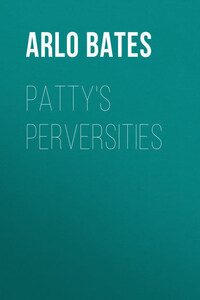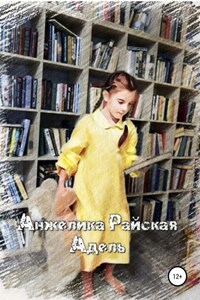I
It was not her beauty which made Irene Gaspic unusual, although she was bewitchingly pretty; nor yet her wit, her cleverness, or her wealth, albeit she was well endowed with all these good gifts: other girls were pretty, and wise, and witty, and rich. It was something far more piquant and rare which marked Irene as different from her mates, the fact being that from her great-aunt on the mother’s side, an old lady who for nearly ninety years displayed to her fellow-mortals one of the most singular characters possible, Irene had inherited the power of seeing ghosts.
It is so generally regarded as a weakness even to believe in disembodied spirits that in justice to Irene it is but fair to remark that she believed in them only because she could not help seeing them, and that the power with which she was endowed had come to her by inheritance quite without any wish on her part. Any fair-minded person must perceive the difference between seeing ghosts because one is so foolish as to believe in them, and believing in their existence because one cannot help seeing them. It might be added, moreover, that the firmness which Miss Gaspic had displayed when visited by some of the most unpleasant wraiths in the whole category should be allowed to tell in her favor. When she was approached during a visit to Castle Doddyfoethghw – where, as every traveler in Wales is aware, is to be found the most ghostly phantom in the three kingdoms – by a gory figure literally streaming with blood, and carrying its mangled head in its hands, she merely remarked coldly: “Go away at once, please. You do not alarm me in the least; but to come into the presence of a lady in such a state of unpleasant dismemberment is in shockingly bad taste.” Whereat the poor wraith fell all along the ground in astonishment and alarm, leaving a stain of blood upon the stone floor, which may be seen to this day by any one who doubts the tale enough to go to Castle Doddyfoethghw to see.
Although Irene seldom referred to her inheritance, and professed, when she did speak of it, to feel a lively indignation that her aunt Eunice Mariamne should have thrust upon her such a bequest, she was too thoroughly human and feminine to lack wholly a secret pride that she should be distinguished by a gift so unusual. She had too good taste openly to talk of it, yet she had not the firmness entirely to conceal it; and her friends were pretty generally aware of the legacy and of many circumstances resulting from its possession. Some few of her intimates, indeed, had ventured to employ her good offices in communicating with family wraiths; and although Irene was averse to anything which savored so strongly of mediumship and other vulgar trades, she could not but be pleased at the excellent results which had followed her mediations in several instances.
When, therefore, she one day received a note from her old school friend Fanny McHugh, inviting her to come down to visit her at Oldtower, with the mysterious remark, “I not only long to see you, dear, but there is something most important that you can do for me, and nobody but you,” Irene at once remembered that the McHughs had a family ghost, and was convinced that she was invited, so to say, in her professional capacity.
She was, however, by no means averse to going, and that for several reasons. The McHugh estate was a beautiful old place in one of the loveliest of New England villages, where the family had been in the ascendancy since pre-Revolutionary days; Irene was sufficiently fond of Fanny; and she was well aware, in virtue of that intuition which enables women to know so many things, that her friend’s brother, Arthur McHugh, would be at home at the time named for the visit. Irene and Lieutenant Arthur McHugh had been so much to each other at one time that they had been to the very verge of a formal engagement, when at the last moment he drew back. There was no doubt of his affection, but he was restrained from asking Irene to share his fortunes by the unpleasant though timely remembrance that he had none. The family wealth, once princely for the country and time, had dwindled until little remained save the ancestral mansion and the beautiful but unremunerative lawns surrounding it.
Of course this conduct upon the part of Lieutenant McHugh was precisely that which most surely fixed him in the heart of Irene. The lover who continues to love, but unselfishly renounces, is hardly likely to be forgotten; and it is to be presumed that it was with more thought of the young and handsome lieutenant in flesh and blood than of the Continental major in ghostly attenuation who lurked in the haunted chamber that Miss Gaspic accepted the invitation to Oldtower.
II
Oldtower stands in a wild and beautiful village, left on one side by modern travel, which has turned away from the turnpike of the fathers to follow the more direct route of the rail. The estate extends for some distance along the bank of the river, which so twists in its windings as almost to make the village an island, and on a knoll overlooking the stream moulders the crumbling pile of stone which once was a watch-tower, and from which the place takes its name.














